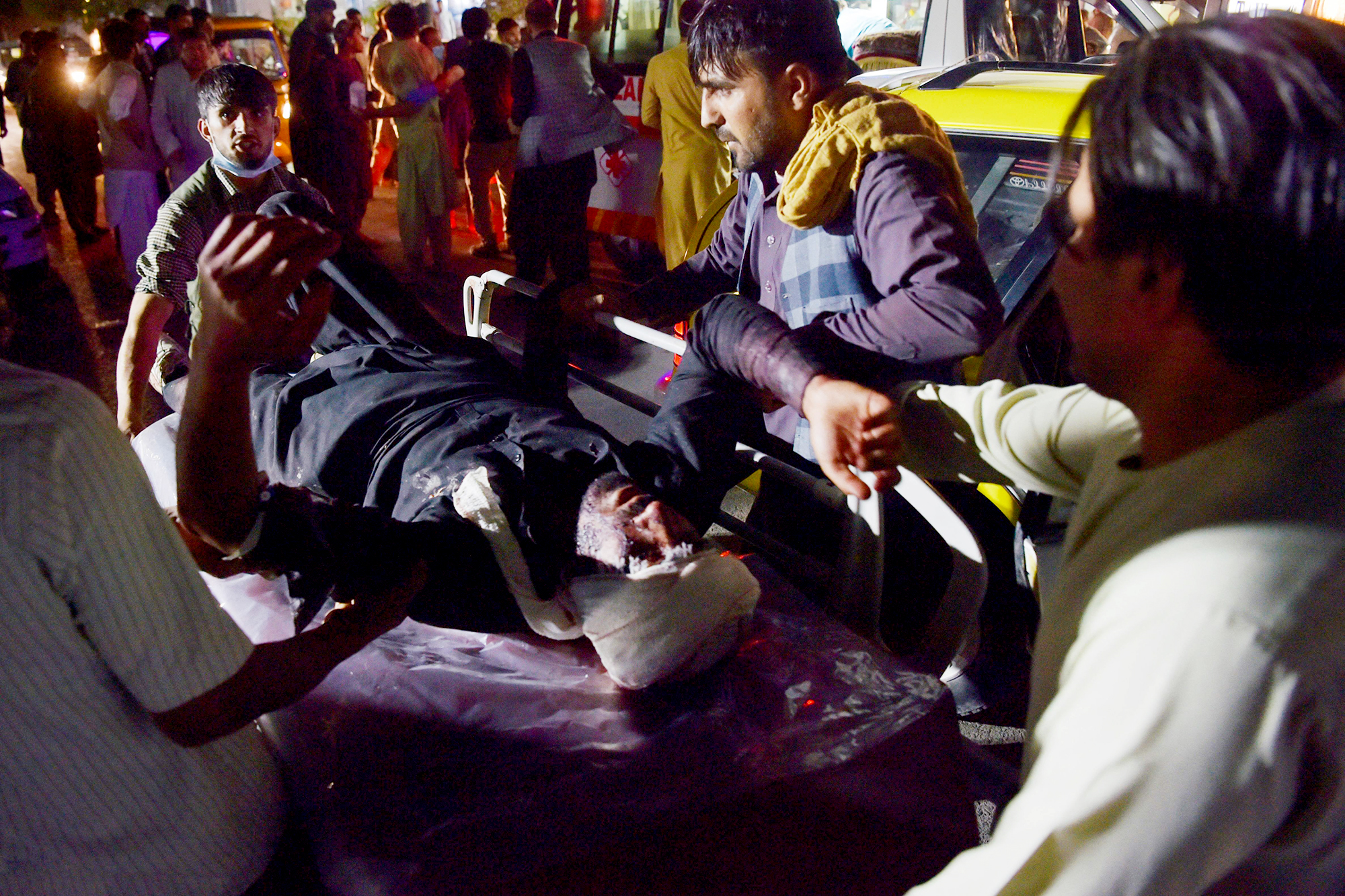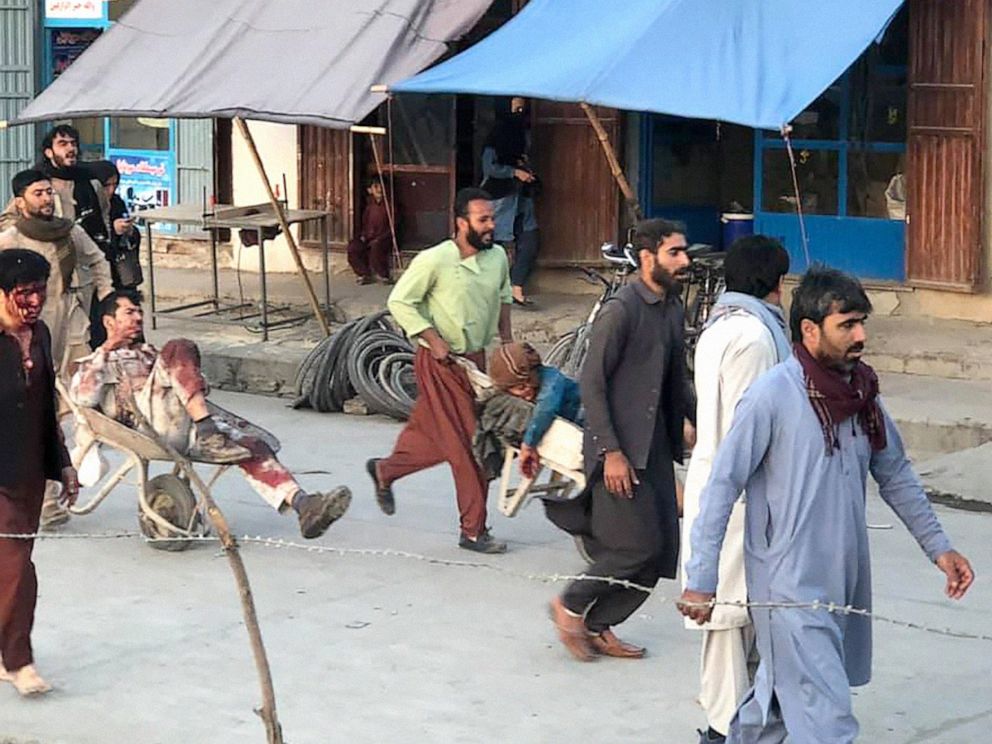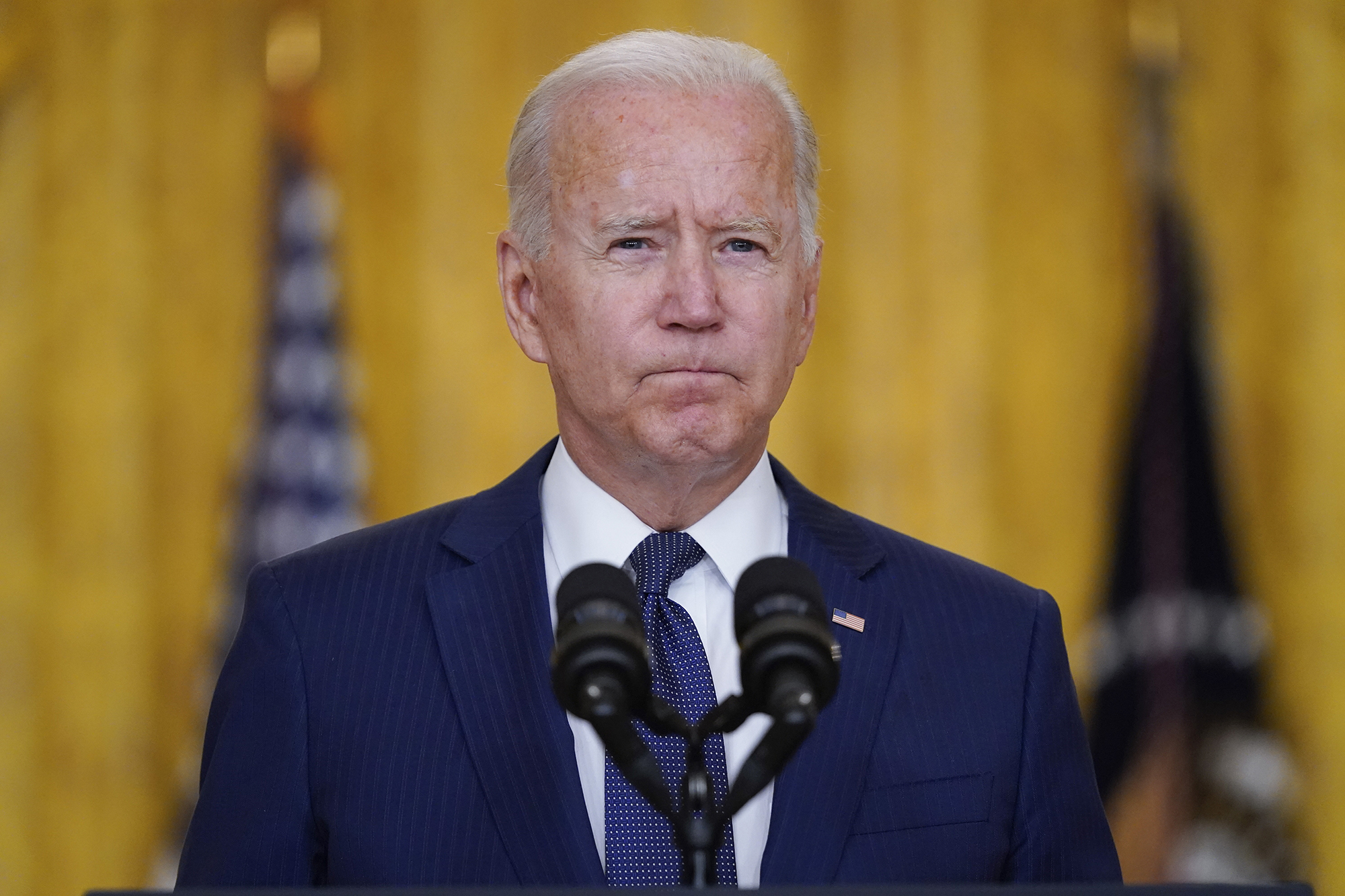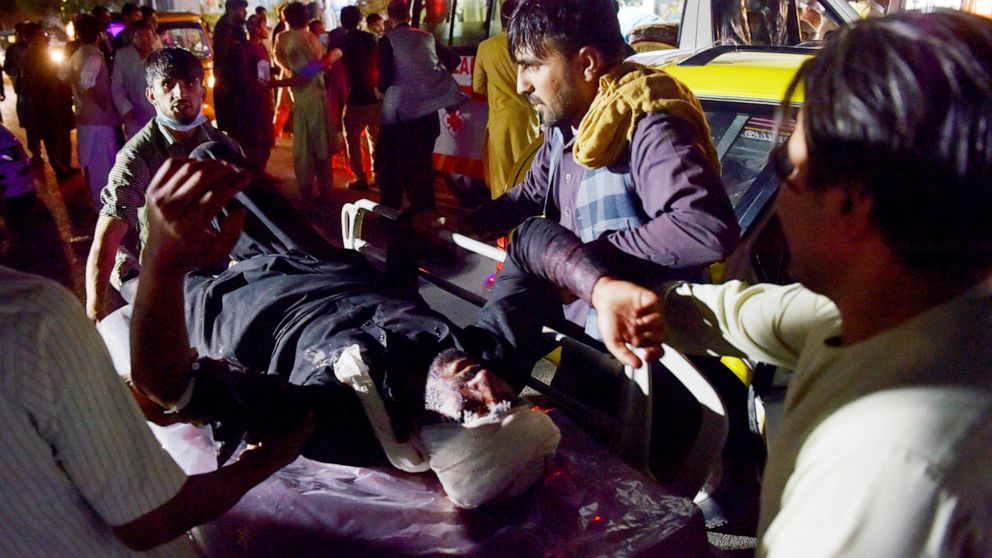What we know about the Kabul airport attack that killed US troops
An explosion that killed at least 13 U.S. service members in Afghanistan on Thursday near the Kabul airport was caused by an ISIS suicide bomber, the Pentagon said.
The bomber detonated in the vicinity of the Kabul airport's Abbey Gate, according to Gen. Kenneth McKenzie, commander of U.S. Central Command.
Pentagon officials initially had said a second suicide bomber had detonated near the Baron Hotel, adjacent to the airport, but that was later retracted.
The U.S. service members killed in the explosion near the Abbey Gate Thursday evening local time included 11 Marines, one Army soldier and one Navy hospital corpsman, or medic, a U.S. official confirmed to ABC News. Twelve were reported dead in the aftermath of the bombing, and a U.S. Central Command spokesperson said Thursday evening that a 13th service member had succumbed to his injuries.
"Additionally, several more were wounded and are being cared for at this time," Maj. Jim Stenger, Marine Corps spokesperson, said in a statement Thursday night.
Eighteen service members were injured in the attack, U.S. Central Command said, up from the 15 initially confirmed.
"We're still working to calculate the total losses," McKenzie said during a briefing at the Pentagon Thursday afternoon. "We just don't know what that is right now."
The attack marks the third-deadliest single day for American forces in the 20-year war in Afghanistan.
The injured troops were evacuated from Afghanistan on C-17s equipped with surgical units.
At least 170 Afghans were killed and 200 were wounded in the attack, according to an official at the Ministry of Public Health who spoke on condition of anonymity with ABC News.
Two British nationals and the child of another British national also were killed in the bombing, British foreign minister Dominic Raab said on Friday, adding that he was "deeply saddened" by the development.

McKenzie said it was his "working assumption" that a suicide bomber was going through the Abbey Gate -- being searched and checked by U.S. service members -- when that person detonated a vest. The general did not know the size of the bomb or have much information about the explosion near the Baron Hotel. No bomber got onto airport grounds, McKenzie said.
The bombing "was followed by a number of ISIS gunmen who opened fire on civilians and military forces," McKenzie said.
"Clearly there had been a failure" from the Taliban forces checking people outside the airport, the general said.
After initially reporting there was a second suicide bombing near the Baron hotel, Pentagon officials said Friday they no longer believe that to be the case.
"I can confirm for you that we do not believe that there was a second explosion at or near the Baron Hotel, that it was one suicide bomber," Maj. Gen. William Taylor said at a Pentagon briefing Friday. "We're not sure how that report was provided incorrectly, but we do know it's not any surprise that in the confusion of very dynamic events like this can cause information sometimes to be misreported or garbled."

Hours after the explosion, the militant group ISIS-K, which stands for Islamic State Khorasan Province, claimed credit for the attack, confirming a suicide bombing.
According to a translation from SITE intelligence group, the Islamic State's Amaq News Agency issued a report on the attack and provided a photo of the bomber.
The message said the Khorasan Province fighter overcame all security fortifications and reached a distance of "no more than five meters from the American forces." The fighter detonated his explosive belt, killing 60 and wounding over 100 others, the militant group wrote, citing "military sources," according to SITE.
McKenzie said the U.S. "will go after" those responsible for the attack "if we can find who's associated with this," and that "we believe it is their desire to continue those attacks."
President Joe Biden reiterated that message during remarks later on Thursday.
"To those who carried out this attack, as well as anyone who wishes America harm, know this: We will not forgive. We will not forget. We will hunt you down and make you pay," he said.
Prior to the explosions, the U.S. Embassy had warned citizens on Wednesday to leave the airport.
Acting U.S. Ambassador to Afghanistan Ross Wilson, on the ground in Kabul, told ABC News' "Good Morning America" Thursday morning before the explosions that the threat was "clearly regarded as credible, as imminent, as compelling."
Biden's national security team advised during a Friday morning meeting in the Situation Room that "another terror attack in Kabul is likely, but that they are taking maximum force protection measures," according to a readout from a White House official.
"They continue to prioritize evacuating the remaining American citizens who have indicated that they wish to leave, and are engaged in a variety of means to get them to the airport safely," the statement read.
The airport has been the site of tragedy and chaos for days as people rushed to be evacuated since Afghanistan's government's collapsed and the Taliban seized control.
Approximately 104,000 people have been evacuated since the effort began on Aug. 14, the White House said Thursday, with a withdrawal deadline set for Aug. 31. The U.S. State Department said Thursday afternoon it believes around 1,000 Americans remain in Afghanistan, a majority of whom want to leave.

Biden said the U.S. "will not be deterred by terrorists" and vowed to pull the remaining Americans and allies out of Afghanistan.
"These ISIS terrorists will not win. We will rescue the Americans in there. We will get our Afghan allies out," he said Thursday. "And our mission will go on. America will not be intimidated."
Biden called the service members killed in the attack "heroes who have been engaged in a dangerous, selfless mission to save the lives of others."
The Pentagon is going through the next-of-kin notification process. Once that is completed, the president will call the troops' families, White House press secretary Jen Psaki told reporters Thursday. The Marine Corps, Navy and Army said the names of those killed will be released 24 hours after family is notified.
"We have some sense ... what the families of these brave heroes are feeling today. You get this feeling like you're being sucked into a black hole in the middle of your chest. There's no way out," Biden said. "My heart aches for you."
ABC News' Aleem Agha, Ben Gittleson, Conor Finnegan, Zoe Magee, Luis Martinez, Molly Nagle and Cindy Smith contributed to this report.




